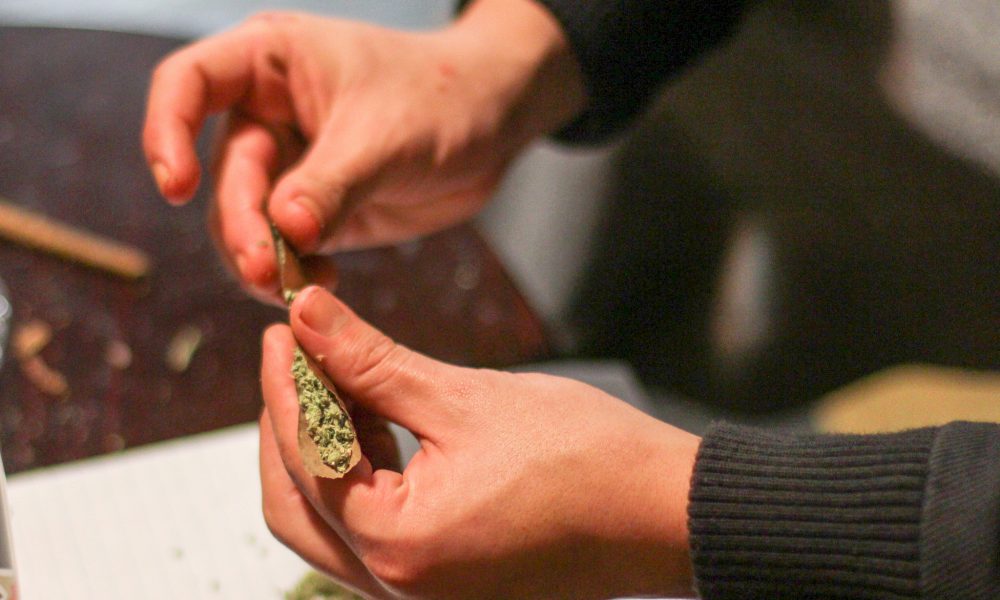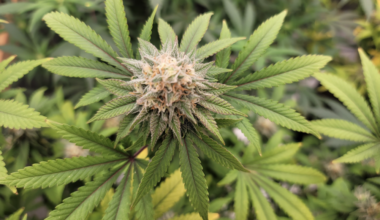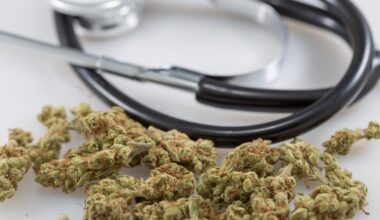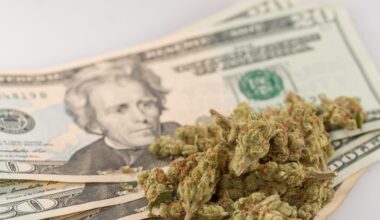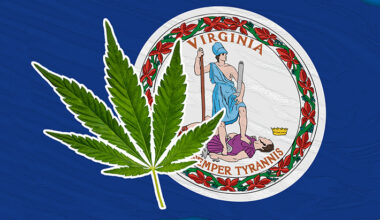A Washington, D.C. Council committee on Thursday unanimously approved a bill to ban most workplaces from subjecting job applicants to pre-employment marijuana testing.
The legislation, sponsored by Councilmember Trayon White (D), cleared the Labor & Workforce Development Committee. It would expand on previous legislation the D.C. Council approved to protect local government employees against workplace discrimination due to their use of medical cannabis.
“This is an important step towards eliminating historic inequities of cannabis use and ensuring that those who use cannabis medically or recreationally are not penalized in their work spaces [for what they do] on their private time,” White said at the committee meeting on Thursday.
The new bill stipulates that, with certain exceptions, “it shall be an unlawful discriminatory practice for an employer, labor organization, employment agency, or agent thereof to require a prospective employee to submit to testing for the presence of any tetrahydrocannabinols or marijuana in such prospective employee’s system as a condition of employment.”
Police, safety-sensitive construction workers and people with jobs that require a commercial driver’s license or work with childcare and patients and positions “with the potential to significantly impact the health or safety of employees or members of the public” could still be drug tested for cannabis, however.
There are also exceptions for workers contracted by the federal Department of Transportation (DOT).
“Nothing in this act shall be construed to require an employer to permit or accommodate the use, consumption, possession, transfer, display, transportation, sale, or growing of marijuana in the workplace,” the bill says.
The move is also consistent with moves in other states to loosen drug testing policies for marijuana as more states move to legalization.
In New York, for example, the state Department of Labor announced last year that employers are no longer allowed to drug test most workers for marijuana.
Prior to the passage of statewide legalization, New York City officials had established a local ban on pre-employment drug testing for marijuana.
—
Marijuana Moment is already tracking more than 1,000 cannabis, psychedelics and drug policy bills in state legislatures and Congress this year. Patreon supporters pledging at least $25/month get access to our interactive maps, charts and hearing calendar so they don’t miss any developments.![]()
Learn more about our marijuana bill tracker and become a supporter on Patreon to get access.
—
Drug testing and workplace issues related to marijuana has become a hot topic as more states move to end criminalization. The conversation has reached everywhere from private industry to Congress.
For example, Amazon recently said that its earlier decision to end drug testing for cannabis will also be retroactive, meaning former workers and applicants who were punished for testing positive for THC will have their employment eligibility restored.
Lawmakers in the Senate and House have both included language in recent appropriations reports urging a review of employment policies for federal agencies with respect to personal use of cannabis. The House version passed in July, while the Senate Democrats’ report was released later that year.
The White House Office of Personnel Management (OPM) recently issued a memo to federal agencies that says admitting to past marijuana use should not automatically disqualify people from being employed in the federal government.
Watch live now
Markup
– Cannabis Employment Protections Amendment ActWatch: https://t.co/AI4bC6rUgg pic.twitter.com/8itoOk8uyN
— Council of DC (@councilofdc) March 3, 2022
Back in D.C., the mayor recently signed a bill into law that will expand access to the District’s medical marijuana program in a series of ways.
Now, senior citizens will be able to self-certify their own eligibility for cannabis without having to get a recommendation from a doctor. The law also further extends the registration renewal deadline for patients and creates a week-long medical marijuana tax relief “holiday” that coincides with the unofficial cannabis event known as 4/20.
That bill also generally expand on prior emergency legislation that the Council approved at the height of the coronavirus pandemic to extend registration eligibility for the medical cannabis program. Patients under 65 with registrations will continue to be validated through at least September 30.
In 2019, another D.C. lawmaker proposed a separate medical cannabis reform bill meant to ease the registration process for patients. Instead of having to wait several weeks for regulators to process their medical cannabis approvals, patients would simply fill out an application with the city health department and would then automatically qualify to legally purchase marijuana on a provisional basis.
The legislation’s author, at-large Councilmember David Grosso (I), introduced a similar bill in 2017, though that version allowed residents to self-certify as medical marijuana patients—without the need to involve a doctor—by signing an affidavit, and it didn’t have the stipulation that their qualifications could be later rejected.
These latest reform developments in D.C. come as the jurisdictions prepares to implement adult-use cannabis sales, which they’ve been blocked from doing so due to a congressional rider despite D.C. voters approving legalization in 2014.
Lawmakers held a joint hearing in November on a pair of bills to authorize the legal sale of recreational marijuana and significantly expand the existing medical cannabis program in the nation’s capital.
A provision of the bill that could have led to a broad crackdown on the city’s unregulated market for recreational cannabis was removed, much to the relief of advocates who criticized the proposed measure over a component that would have punished businesses that “gift” marijuana in a manner that effectively circumvents the local prohibition on retail cannabis sales.
Marijuana possession and gifting is legal under a voter-approved 2014 initiative—but there currently isn’t a regulated market and people aren’t allowed to accept any form of renumeration for gifting.
The U.S. House passed Fiscal Year 2022 spending legislation that would remove the block on D.C. marijuana sales in July. The Senate has not yet advanced its version of the bill through the Appropriations Committee or on the floor, though panel leaders released a draft measure in October that would similarly let D.C. legalize marijuana commerce.
Democratic congressional leaders have been taking those steps toward deleting the rider despite the fact that President Joe Biden’s budget proposal sought to continue the Republican-led ban.
Rep. Eleanor Holmes Norton (D-DC), who represents the District in Congress, said in November that she is “closer than ever” to removing the blockade on cannabis commerce in her district.
That said, it’s not clear if a forthcoming funding bill for the rest of 2022 will continue the rider or not.
Meanwhile, the mayor said last April that local officials are prepared to move forward with implementing a legal system of recreational marijuana sales in the nation’s capital just as soon as they can get over the final “hurdle” of congressional interference.
Bowser introduced a cannabis commerce bill last February, though her measure was not on the agenda for November’s hearing alongside the cannabis legalization proposal put forward by Mendelson.
Under the chairman’s bill, at least half of marijuana business licensees would issued to social equity applicants, defined as people who faced previous convictions for cannabis-related offenses or have lived in areas with high levels of poverty, unemployment or marijuana arrests for 10 of the past 20 years.
The tax rate for adult-use marijuana products would be set at 13 percent, while medical cannabis would be taxed at six percent.
Thirty percent of tax revenue from cannabis sales would go toward a Cannabis Equity and Opportunity Fund, which would “provide loans, grants and technical assistance to these applicants.
Fifty percent of tax revenue would go to a community reinvestment fund that would provide grants to “organizations addressing issues such as economic development, homeless prevention, support for returning citizens, and civil legal aid in areas with high poverty, unemployment, and gun violence.
The courts would be required to identify and expunge records for people convicted of marijuana offenses made legal under the law. People who are actively incarcerated could have their sentence “modified, vacated, or set aside.
There are also consumer protections written into the legislation, ensuring that people using cannabis in compliance with the law don’t lose benefits, employment or other social services.
Local marijuana activists also proposed an amendment to Mendelson’s legalization bill that would allow small entrepreneurs to sell cannabis at farmers markets. It’s not clear when D.C. lawmakers will convene again to vote on proposed changes and the overall legislation.
The separate medical cannabis bill that the Council considered late last year would allow patients to obtain marijuana from any registered dispensary in the District, instead of just one that they’re registered with under current law. A summary says that dispensaries could also “operate safe use treatment facilities as well as offer tastings and demonstrations and/or classes with the proper endorsements” under the proposal.
Further, delivery and curbside pickup would be permitted. The cap on the number of plants that a cultivation center can grow would be eliminated, and the number of dispensaries permitted in the District would be increased. Additionally, the bill seeks to remove “certain prohibitions against returning citizens ability to take part in the medical marijuana industry.”
Last March, a federal oversight agency determined that the congressional rider blocking marijuana sales in D.C. does not preclude local officials from taking procedural steps to prepare for the eventual reform, such as holding hearings, even if they cannot yet enact it with the blockade pending.
Separately, another group of activists announced an effort to pressure local lawmakers enact broad drug decriminalization, with a focus on promoting harm reduction programs, in the nation’s capital. A poll released last year found that voters are strongly in favor of proposals.
Photo courtesy of Martin Alonso.
Medical Disclaimer:
The information provided in these blog posts is intended for general informational and educational purposes only. It is not a substitute for professional medical advice, diagnosis, or treatment. Always seek the advice of your physician or other qualified healthcare provider with any questions you may have regarding a medical condition. The use of any information provided in these blog posts is solely at your own risk. The authors and the website do not recommend or endorse any specific products, treatments, or procedures mentioned. Reliance on any information in these blog posts is solely at your own discretion.
